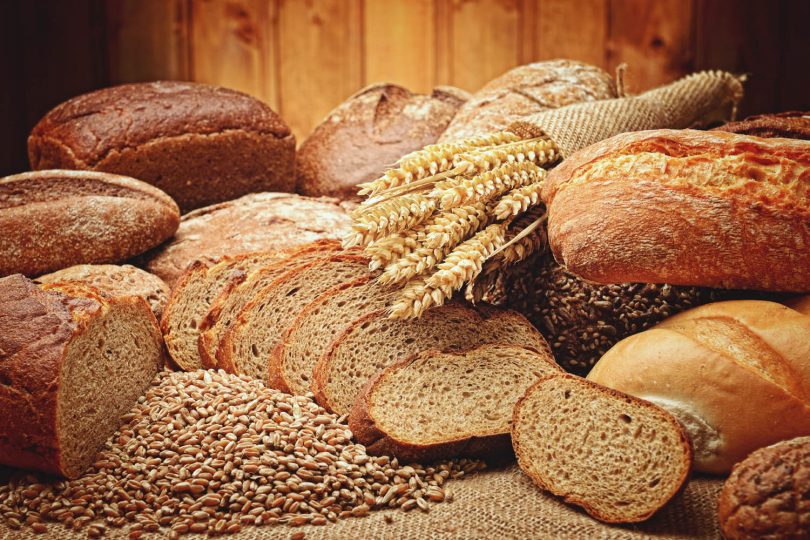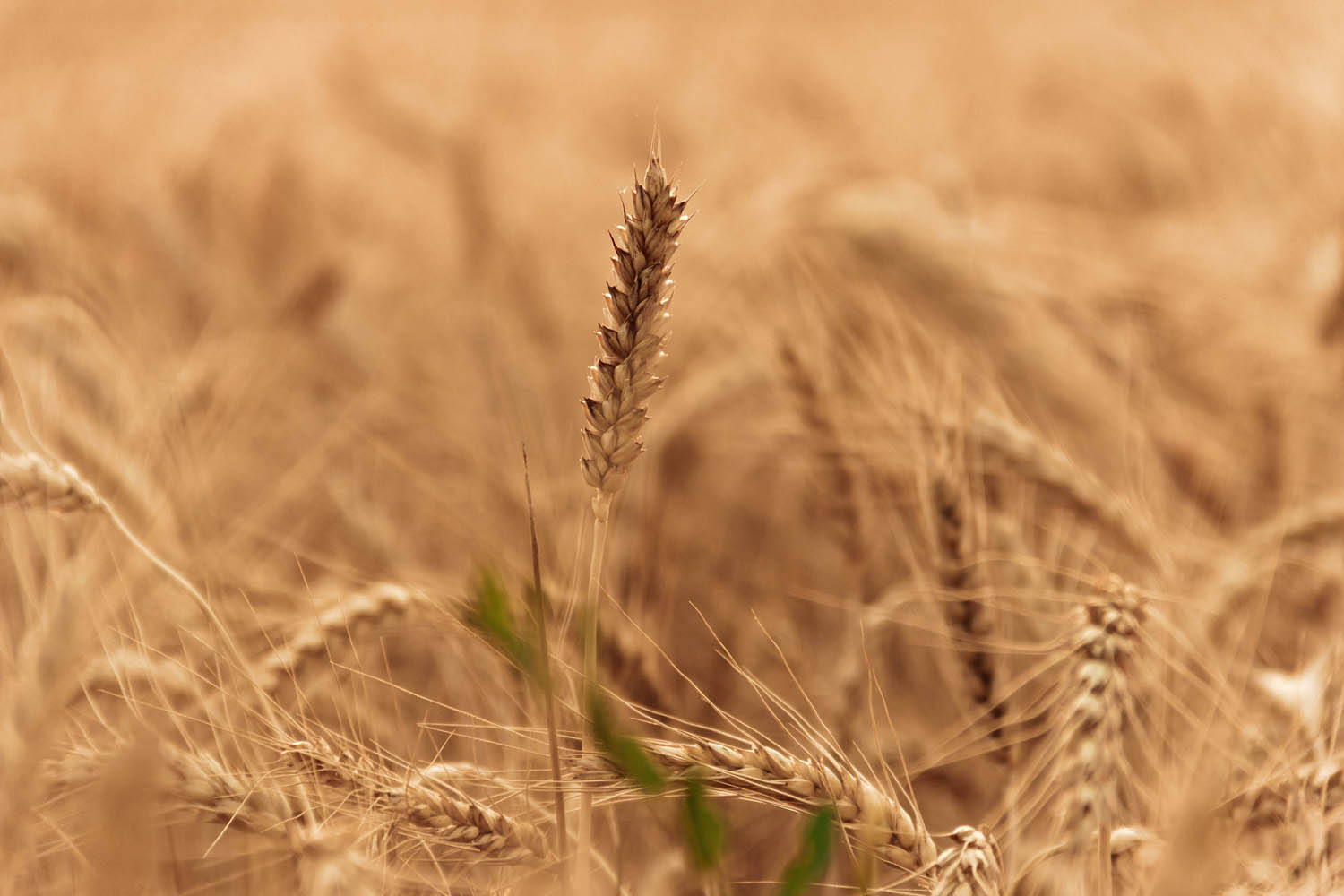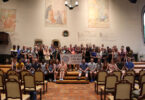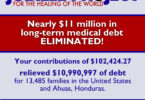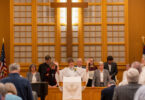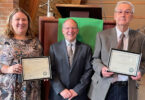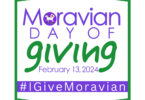Messages on John 6:24-35
Each week, Moravians across the U.S., Canada and the Caribbean share a common message through their Sunday bulletins.
This month, we share writings based on John 6:24-35. This Bible text is for “Proper 13” in Lectionary Cycle B of the Revised Common Lectionary used by the Moravian Church.
“Give us this bread always”
by Staci Marrese-Wheeler, pastor, Lakeview Moravian Church, Madison, Wisconsin • August 5, 2018
The book Sleeping with Bread: Holding What Gives You Life begins with the story of children orphaned after bombing raids in World War II. Many were safe and cared for in refugee camps, but could not sleep because of the magnitude of what they had lost. Their fears of waking up with no home and no food were so great that someone suggested giving them a piece of bread to take to bed with them. When they held the bread, they could finally sleep. The bread reminded them that they had been fed that day, and they had the security of knowing they would eat again the next day.
The authors of the book—Dennis, Sheila, and Matthew Linn— use this story as a metaphor to introduce a prayer method called the Examen, which originated with Ignatius. In the Examen you reflect upon each day as it ends, with two questions: “For what am I most grateful?” “For what am I least grateful?”
When used daily, these questions can help identify moments when we are most aware of God’s presence in our days and most in need of God’s presence in our days. This prayer practice can deepen one’s spiritual life and help discern one’s call.
After Jesus fed the five thousand on the lakeshore, the crowds followed him and asked him for signs that he was from God. Jesus knew they were looking not for spiritual answers but for more physical food. Like the orphaned children, they could not believe they would be fed again without seeing more bread. The crowds wanted proof of God to quell their fears and doubts.
And so it is with us at times.
Hold on to what gives you life—Jesus, the bread of life—and you will rest in his love always.
Comfort Food
By Willie Israel, pastor, Rolling Hills Moravian Church, Longwood, Florida • August 16, 2015
Our fond memories often involve food. When we’re stressed, we are inclined to crave the food that comforted us when we were children, safe at home. These comfort foods fill our bellies, and they also satisfy the emotional hunger that has resulted from the worries of our adult lives. Our comfort foods are different for each one of us, but they often involve some kind of bread: the smell of Mom’s homemade yeast rolls fresh from the oven or of hot biscuits dripping with butter are a couple of examples.
Bread is a basic element in the diet of nearly every culture; so Jesus’ words, “I am the bread of life,” evoke an image that resonates with followers of Jesus Christ worldwide. But while bread may be a comfort food for us, those words were far from comforting for the skeptical, questioning crowds to whom Jesus spoke.
Jesus, who often used rich poetic images in his teaching, was introducing a new “menu item” to the spiritual diet of his listeners, and a lot of them weren’t sure they wanted to sample the offered feast. Those words were shocking! “Eat his flesh? Drink his blood? No thanks! Let’s stick with what we’re accustomed to.”
But Jesus didn’t intend for his words to be comforting. Jesus wanted his listeners––and he wants us––to understand that his own life and his own sacrifice have to be the fundamental elements of our spiritual diet. If we continue to take comfort in what the world offers, our spirits will starve.
Psalm 34:8 gives us the words, “Taste and see that the Lord is good.” When we recognize that Jesus is basic to our lives, we will always crave the “comfort food” he has prepared for us.
Manna in the wilderness
David Merritt, pastor, Hope Moravian Church, Winston-Salem, N.C. • August 3, 2003
Jesus calls himself the Bread of Life. We can touch bread. We can eat bread. Surely Jesus knows how important bread is. By calling himself the Bread of Life, Jesus identifies his ministry with a basic component of life.
Even more important is the role of bread to the chosen people, the Hebrews. Bread in the wilderness was life. Without it, the nomadic travelers would have withered from the desert heat. Manna, a mysterious feathery substance, offered enough food value to sustain the people of God. Now Jesus declares he is more than rabbi, prophet, king, or miracle worker. He is bread. He is the manna in the wilderness.
One day while I was working at King Outreach Ministry, a mother and a small child came to us for help. The presenting problem was an overdue light bill. The bill had been overdue for so long that the client would have to reapply for service. The need was greater than our resources. It seemed as though the request would be denied.
As we discussed alternatives, the client expressed the need for food until she “could work something out.” As we walked to the food room, I took the child’s hand in mine and told her to choose any food items that she wanted. Her eyes became wide with anticipation. She reached from shelf to shelf to choose from our newly stocked pantry—macaroni and cheese, spaghetti, fruits, fresh bread and pudding.
And with each choice in hand, I told her she had come to “God’s Grocery Store,” that Jesus had given us the food to share with those in need. Jesus became the Bread of Life for that struggling family that afternoon. As the New Testament reveals, Jesus lives through the acts of his people.
The Bread that Satisfies Forever
By Norman E. Prochnau, pastor, First Moravian Church, York, Pa. • August 7, 1994
When I was growing up on the farm in Alberta, Canada, Saturday was usually the day mother (or a sister) baked bread. She would prepare the dough, put it in the bread pans to rise, fire up the kitchen wood stove, and place the pans in the oven. Ah, the aroma that would ascend, first from the oven, and then from the fresh loaves of bread after their removal from the oven! Tasting, eating, and being filled with fresh bread was even more satisfying. There was only one problem. That satisfaction didn’t last. It never does. So it is with all the food we consume. It nurtures our physical existence but nothing more.
By contrast, the bread which Jesus offers satisfies human hunger and thirst forever. Jesus says, “I am the bread of life. Whoever comes to me will never be hungry” (John 6:35). What a claim! What a promise! I like the way William Barclay adds meaning to this claim: “Bread sustains life. Bread is the staff of life. Bread is that without which life cannot go on. Bread is the essential to life.” That is precisely what Jesus is to the believer. Moreover, Jesus gives life a new dimension––a spiritual dimension. This life expands far beyond mere physical existence; it enables us to have a new, spiritual relationship with God. Such a relationship fully satisfies and lasts forever.
If we truly desire the real bread of life, all we have to do is beg Jesus to give it to us all the time. Let us accept his offer and invitation. Let us come to him often in faith, love, obedience, prayer and the breaking of bread.
Lord, I hunger only after thee;
Feed thou me, feed thou me. Amen.

